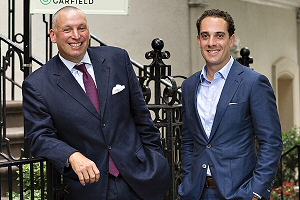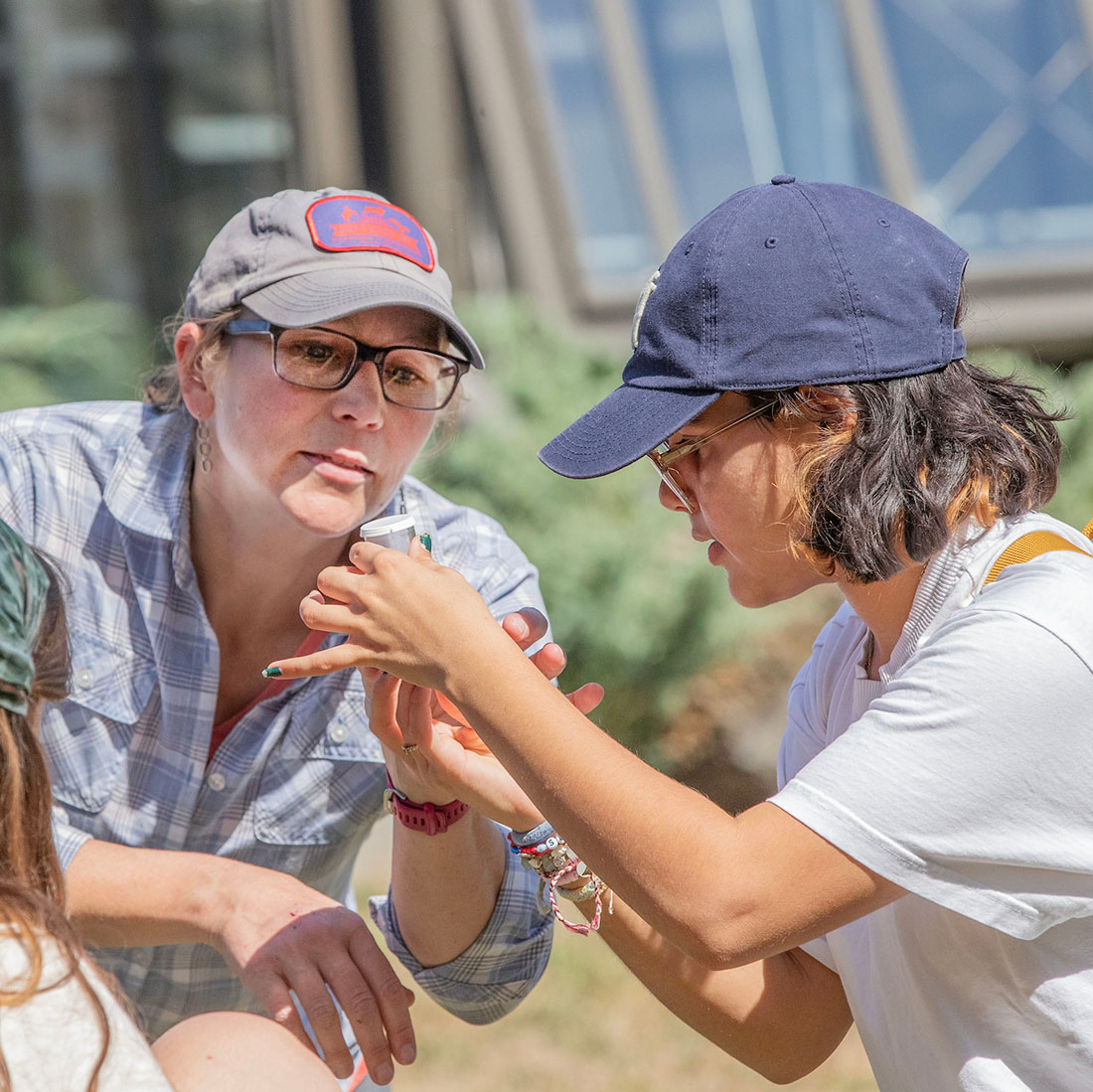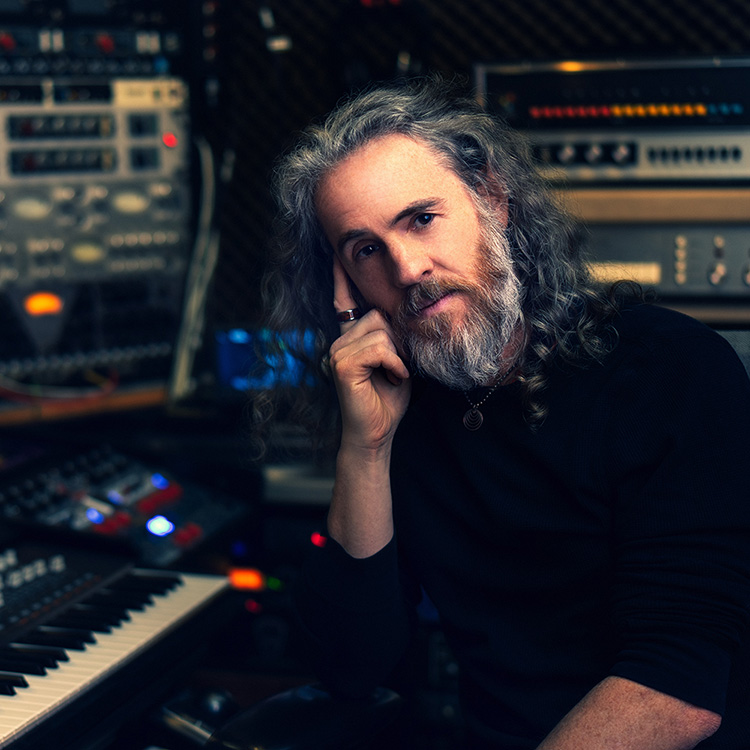Career competitors: The athletic edge

Jed Garfield '85, left, and Matt Lesser '05
"A lot of our business is collaborating," explains Matt Lesser '05 from his office
at Manhattan's boutique real-estate brokerage Leslie J. Garfield. "It's so vital,
especially early on, to be able to work with one another and take criticism. You have
to be able to learn from the person that's better than you."
It's not only Skidmore academics that got him where he is today; it's also his athletics
background. He played basketball all four years at Skidmore and was hired shortly
after graduation by fellow alumnus Jed Garfield '85. Now Lesser muses, "I think of
myself 13 years ago, wandering around and listening to my senior partner on the phone.
I learned by watching others—it was like watching Michael Jordan and trying to be
as good as that."
He's just one of many former Thoroughbreds who have parlayed varsity experience into
career success.
Caylyn Sullivan '12 has been working with Lesser and Garfield for the last five years,
since contacting them through the Skidmore alumni network. With four years of field
hockey and a year of rowing to her credit, she showed the sort of drive the firm values.

Caylyn Sullivan '12
In real estate, "the results of your hard work are not instantaneous," Sullivan explains.
"You really need to stay focused on the goals and persevere. It's the same sort of
mindset you need to compete as an athlete." Lesser agrees. "It's 'eat what you kill'—this
isn't really a salaried field. So you need to understand that working hard and fighting
through will get you to success."
How athletes stand out
Abigail Thomas '16 entered M&T Bank's management development program after interviewing
on campus at Skidmore. Although she majored in business and minored in economics,
it was her experience as an equestrian that especially translated into the workplace.
Joining the equestrian team in her junior year (and riding in the Intercollegiate
Horse Show Association nationals as a senior), she found that "competing in an individual
sport like riding was an introduction to accountability that I hadn't experienced
before. A judge examined each detail of my performance and scored me accordingly."
Drawing on that experience, Thomas views setbacks and imperfections as opportunities
for improvement. "Nothing is more satisfying than succeeding in something you never
thought you could do," she says. "Being an athlete has always meant striving to be
the best I can."
Sullivan, who majored in health and exercise sciences, points to time management as
one of her career skills. "At Skidmore I had to make sure that I was on top of my
course assignments, and I organized my days so that I could get everything done well
and on time. Working in real estate is very similar, because I have business-generating
and business-servicing activities."
While Lesser's business degree applies directly to his career, he cites the work ethic
and commitment that he learned on the basketball court. He says it serves him well
today and remains a skill he values in the people he hires. He also credits his college
teammates for their inspiration and example. "I gained a lot from my peers and teammates
and how they figured out how to approach tasks in life," he says. Sullivan agrees:
on his team, "each person had an admirable trait that made you work that much harder
and want to be that much better."
Bringing the sporting life to work
During the spring 2017 term, current Skidmore athletes benefitted from a program presented
by the Athletics Department and the Career Development Center, "Champions for Hire:
Why Employers Seek Athletes." The panel discussion featured Garfield, Lesser, Sullivan
and other contacts representing Ayco, M&T Bank, the Vermont State Police, and two
startups.
In addition to networking with the speakers, student-athletes learned about research
showing that businesses prefer hiring individuals with athletics experience. To capitalize
on this trend, they received advice about how best to market their involvement in
sports and their transferable skills during their job hunts.
At the same time, 10 student-athletes were immersed in a project spearheaded by Rene
LeRoux '78, a longtime Wall Streeter who is now executive director of the New York
State Baseball Hall of Fame. The three women and seven men joined in pioneering a
new method of supporting potential inductees for the National Baseball Hall of Fame
in Cooperstown, N.Y. Under the guidance of LeRoux and Skidmore business professor
Tim Harper, the students took up the Cooperstown applications three former big-league
players, pulling statistics, conducting player comparisons and developing arguments
for induction.
"I was amazed at their aptitude, intelligence and enthusiasm for the project," LeRoux
says. "They may end up interning for the Red Sox or the Yankees—in fact, this could
lead to any number of opportunities." He asserts, "Their high-level work may change
the landscape for induction. These students could form a public relations company
and expand this to a saleable model."
In any event, alumni often carry their sports interests with them. Lesser says, "Basketball
will always be part of who I am. I play with a group of guys once a week. We talk
about what's going on in our industry, and they've become a great resource." Also,
he adds, "I play golf with clients. An email is easy to ignore, but four hours on
a golf course with someone makes you memorable."
Alumni advice
Matt Lesser '05 now hires new employees, but he's never forgotten the rigors of being
on the other side of the interview desk. His hints to career seekers, athletes or
not:
What's on paper doesn't always match what comes through the door. Make sure your resume addresses practical skills as well as listing employment history,
especially early in your career. "It's about being put together and presenting properly,"
Lesser says, "being able to communicate your experiences and what you did in college."
You never know who you'll meet. Follow up with thanks for the hiring manager's time, even if you're not interested
in the job. Be courteous because "you never know who that person knows in different
industries," Lesser explains, and what if a shared connection asks about you for some
other job?
Know when to pick up the phone and talk. "Our business is based on relationships," Lesser says, "so we're always figuring
out ways to stay top of mind." Today, it's easy to send an email or a text, but "we
look for people who know when to make a call. And meeting face to face is worth 20
years of two-minute phone calls."
Overcome rejection and move forward. As a new employee, your job is to learn from more experienced colleagues. "I'll be
the first one to admit I'm still learning," says Lesser, though he's been a partner
for three years. "People can be sensitive and let criticism negatively affect them,
but you have to forget the bad feelings, listen, and learn from the experience."
Immerse yourself in your industry. "We're selling the most expensive real estate in the city, or even the world," Lesser
says, so it's crucial to learn all about the competition and his firm's niche. "We
look to hire people who are knowledgeable and persistent and just plain smart."


